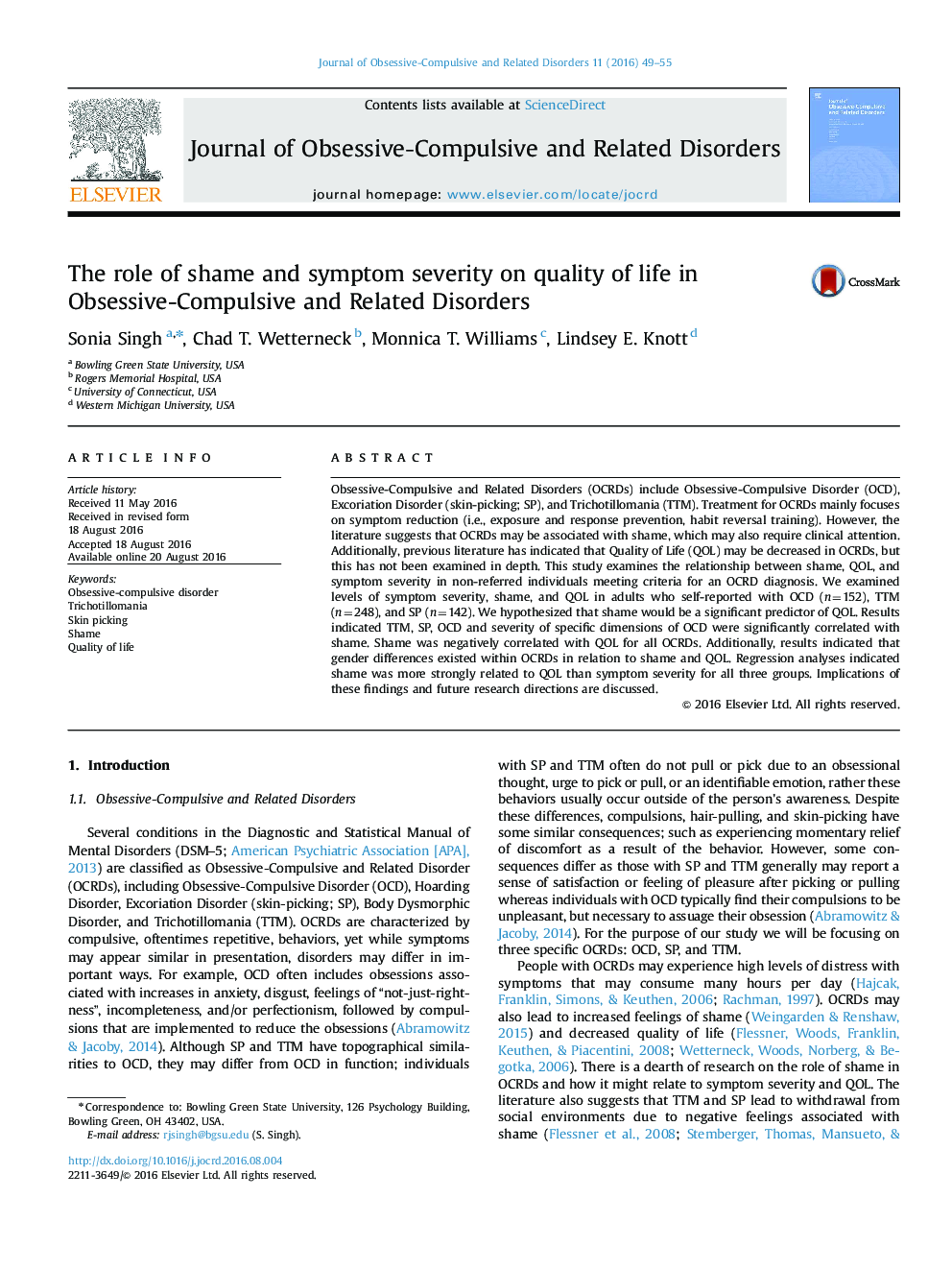| Article ID | Journal | Published Year | Pages | File Type |
|---|---|---|---|---|
| 7269110 | Journal of Obsessive-Compulsive and Related Disorders | 2016 | 7 Pages |
Abstract
Obsessive-Compulsive and Related Disorders (OCRDs) include Obsessive-Compulsive Disorder (OCD), Excoriation Disorder (skin-picking; SP), and Trichotillomania (TTM). Treatment for OCRDs mainly focuses on symptom reduction (i.e., exposure and response prevention, habit reversal training). However, the literature suggests that OCRDs may be associated with shame, which may also require clinical attention. Additionally, previous literature has indicated that Quality of Life (QOL) may be decreased in OCRDs, but this has not been examined in depth. This study examines the relationship between shame, QOL, and symptom severity in non-referred individuals meeting criteria for an OCRD diagnosis. We examined levels of symptom severity, shame, and QOL in adults who self-reported with OCD (n=152), TTM (n=248), and SP (n=142). We hypothesized that shame would be a significant predictor of QOL. Results indicated TTM, SP, OCD and severity of specific dimensions of OCD were significantly correlated with shame. Shame was negatively correlated with QOL for all OCRDs. Additionally, results indicated that gender differences existed within OCRDs in relation to shame and QOL. Regression analyses indicated shame was more strongly related to QOL than symptom severity for all three groups. Implications of these findings and future research directions are discussed.
Related Topics
Health Sciences
Medicine and Dentistry
Psychiatry and Mental Health
Authors
Sonia Singh, Chad T. Wetterneck, Monnica T. Williams, Lindsey E. Knott,
